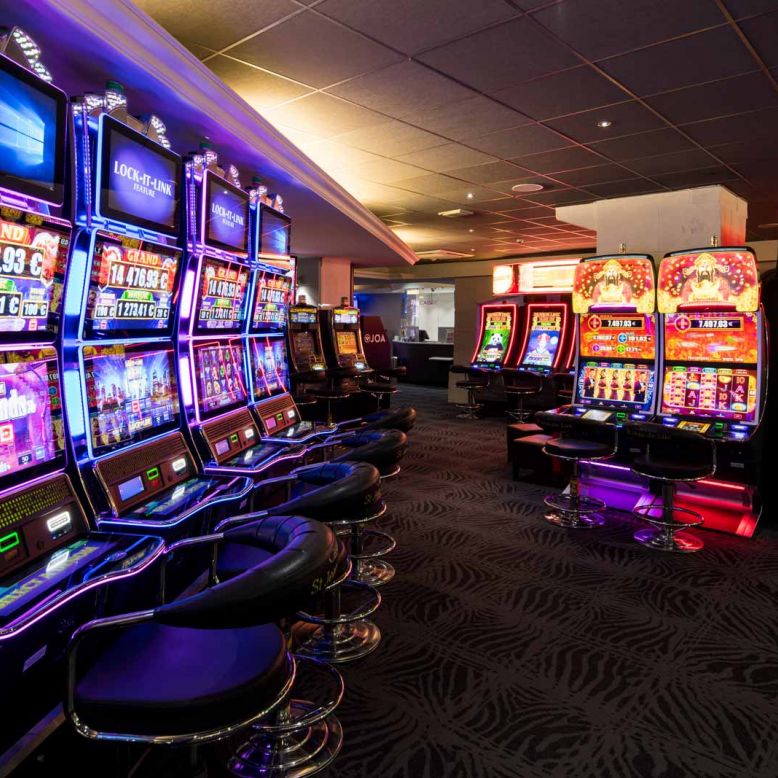
When we think of casino games, the first pictures that often come to mind are those of rotating wheel wheels, poker chips clinking on felt tables, and cubes rolling across a gaming area. While numerous consider these games as simple hobbies fueled by chance, a deeper exploration reveals a fascinating blend of strategy, skill, and community engagement that elevates them far beyond simple luck. Whether you are a seasoned player or a inquisitive newcomer, understanding the subtleties of these games can greatly enhance your enjoyment and understanding.
Casino games have developed over centuries, with various cultures contributing to their diverse histories and different forms. From the intricate tactics of blackjack to the bluffing tactics in poker, players engage in a contest of wits as much as a risk on odds. This dynamic interplay between chance and expertise creates a exciting atmosphere that draws countless people to casinos worldwide. As we explore the world of card games, we will reveal the methods that can shift the odds in your advantage and the community aspects that make these games a popular choice for leisure and engagement.
The Strategy of Table Gaming
Casino games frequently involve a blend of skill and luck, making them fascinating for players who enjoy a test. Each game has their unique set of rules and tactics that can affect the outcome. For example, in titles like blackjack, players are obliged to use tactics like counting cards and understanding the probabilities to make informed decisions. This expertise can significantly improve the winning potential, differentiating experienced participants from beginners who may rely solely on chance.
In contrast, games such as roulette may appear to be entirely based on chance, but tactical thinking can also play into play. Participants can choose between various wagering strategies, such as the Martingale strategy, where they increase the bets after losses. This method can create a more controlled approach to the game. Grasping the odds of specific bets can also help participants make smarter decisions on the table, demonstrating that even in games of chance, tactics can enhance the experience. non UK registered casinos
Furthermore, the game of poker is notable as a game that heavily emphasizes tactics. Unlike most casino games, poker combines skill, mental acuity, and chance. Participants must also concentrate on the hands they are given but also consider their rivals’ actions and wagering patterns. Mastering concepts like table position, the odds of the pot, and reading bluffing is crucial for winning. This complexity of strategy in the game of poker often creates to a more engaging experience for players, as their choices and skills significantly affect the match’s outcome.
Grasping Chance and Odds
In the world of casino games, likelihood and ratios hold a critical role in deciding a gambler’s possible outcomes. Every match has its own collection of guidelines that define how the probability of succeeding or failing is measured. For instance, in matches like blackjack, participants have a chance to influence their ratios through strategy, whereas in matches like roulette, the outcomes are entirely governed by luck. Understanding how these chances are measured can significantly affect how a gambler approaches the game.
Odds are typically expressed in two forms: fractional and decimal. Ratio ratios show the proportion of the amount gained to the sum staked, whereas decimal odds show the overall return for a successful wager, which includes the stake. For instance, if a match has odds of 5 to 1, this implies that for every one dollar staked, a gambler could gain five dollars if successful. Understanding how to interpret these odds allows players to evaluate their potential winnings and make more educated decisions during gameplay.
Players should also be conscious of the casino advantage, which is the casino’s built-in advantage over the gamblers. Each game has a distinct advantage, and grasping this concept is crucial for controlling one’s expectations and bankroll. Activities with a lower advantage, such as blackjack and chemin de fer, typically offer superior odds for players compared to games like slots and lottery. By recognizing the relationship between chance, ratios, and the casino advantage, gamblers can improve their gaming experience and plan more efficiently.
The Aspect of Table Gaming
Casino games at casinos are often seen as a hub of community engagement, bringing participants together in a shared experience that extends far beyond the mere act of playing games. The atmosphere at a poker table can be vibrant, with gamblers engaging not only with the game itself but also with one another. Laughter, cheers, and, occasionally, playful teasing create connections that enhance the overall experience of the gaming experience. This communal aspect can turn a solitary endeavor into a dynamic gathering, making table games particularly enticing.
One of the intriguing elements of table gaming is the way it fosters friendship among participants. Whether it’s teaming up to beat the dealer at a craps table or sharing stories between hands in a poker game, the environment encourages interaction. Players often share tips or tactics, creating a sense of community that boosts the fun. This interpersonal atmosphere can make new gamblers feel welcomed and less intimidated by the competitive nature of gaming. As the game progresses, friendships may form, leading to a sense of connection that keeps players coming back to the table.
Moreover, the social aspect of gaming at tables extends beyond just the players. Casino staff play a vital role in facilitating interaction and maintaining the flow of the game. Their ability to engage players with warm dialogue and their expertise in running the table can create an inviting atmosphere. This connection between players and dealers adds another layer of enjoyment, where players feel connected not only to one another but also to the staff. Such interactions are often what make the experience memorable, as participants leave with tales to tell and connections made, reinforcing the notion that table games are truly about something greater than luck.